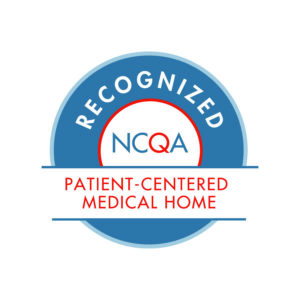Whether you’re searching for a pediatrician for your newborn or your teenager, you want your child to have the best care. We do, too. That’s why our board-certified pediatricians have extensive training in diagnosing childhood illnesses, from minor to more serious health issues. No matter the concern, our pediatric team is prepared to provide the care your child needs. Premier Pediatrics has two convenient locations in Poughkeepsie and Fishkill and offers flexible scheduling including evening, weekend, and Telemedicine appointments.
Premier’s Pediatric division cares for children from birth to age 21 and provides them with the highest quality pediatric care in the Hudson Valley. To acknowledge that vital role in your children’s lives, our Pediatric division is qualified as a NCQA-certified Patient Centered Medical Home.
 What is a medical home? At your medical home, we manage your child’s total health and well-being with you. Our clinicians, nurses and support staff work together to ensure that your child has routine well-child exams and age-appropriate screening tests. We are available 24/7 to answer your medical questions. We help keep track of your specialist appointments and we call you for follow up after trips to the urgent care center or emergency room.
What is a medical home? At your medical home, we manage your child’s total health and well-being with you. Our clinicians, nurses and support staff work together to ensure that your child has routine well-child exams and age-appropriate screening tests. We are available 24/7 to answer your medical questions. We help keep track of your specialist appointments and we call you for follow up after trips to the urgent care center or emergency room.
We have found that a significant number of our patients come from referrals through our existing families. We feel that this speaks to the strength of our doctors and our enduring commitment to quality care. After hours phone calls to our office are handled by a well-trained pediatric nurse service. We are available to our patients 24 hours a day, 7 days a week. All of our Pediatrics doctors have admitting privileges at Vassar Brothers Medical Center.
At Premier Medical Group, we believe that immunizations (“shots”) are one of the most important public health advances in the history of medicine. As a result of this belief, Premier Pediatrics has implemented a policy that requires the initiation of certain immunizations by specific childhood ages.
There has been a considerable amount of concern over certain alleged risks of immunizations in recent years. While the doctors at Premier are aware of this, to this point these concerns have not been proven by legitimate medical research.
While we strongly encourage all children to receive their immunizations on the schedule set forth by the American Academy of Pediatrics and the Centers for Disease Control (CDC), we realize that a small number of parents may wish for their children to be immunized at a slower pace. We ask that, in order for your child to remain a patient with our practice, he or she initiate the following series of immunizations on or before the ages listed:
At age 2 months: DTaP, Hib, Prevnar
At age 15 months: MMR, Varicella
At age 4 years: Hepatitis B, Hepatitis B, Polio
At age 10-13 years: Tdap, Menactra, HPV (strongly recommended but not required)
These immunizations are not required to be given all at one visit, but we encourage the series to be completed as close to the recommended schedule as possible. Please be aware that if your child will be entering daycare or preschool, they will need most of these immunizations completed prior to enrollment.
We do not accept any patients who do not immunize their children. You are welcome to start vaccinating your child at this point. If you have decided against immunizations, however, you will have 30 days to find a new health care provider for your children.
1 Webster Ave. Suite #302
Poughkeepsie, New York 12601
Tel: (845) 454-4200
Fax: (845) 452-2075
Office Hours:
Monday – Thursday: 8am – 7pm
Friday: 8am – 5pm
Saturday: 8:30am – 1pm
Weekend and evening availability by appointment only
200 Westage Dr. Suite #111
Fishkill, New York 12524
Tel: (845) 896-4505
Fax: (845) 896-4552
Office Hours:
Monday – Thursday: 8am – 5pm
Access your child’s medical records online, anytime with Premier Medical Group’s Patient Portal!
To sign up, please call or stop by the front desk at any of our locations and request your activation code.